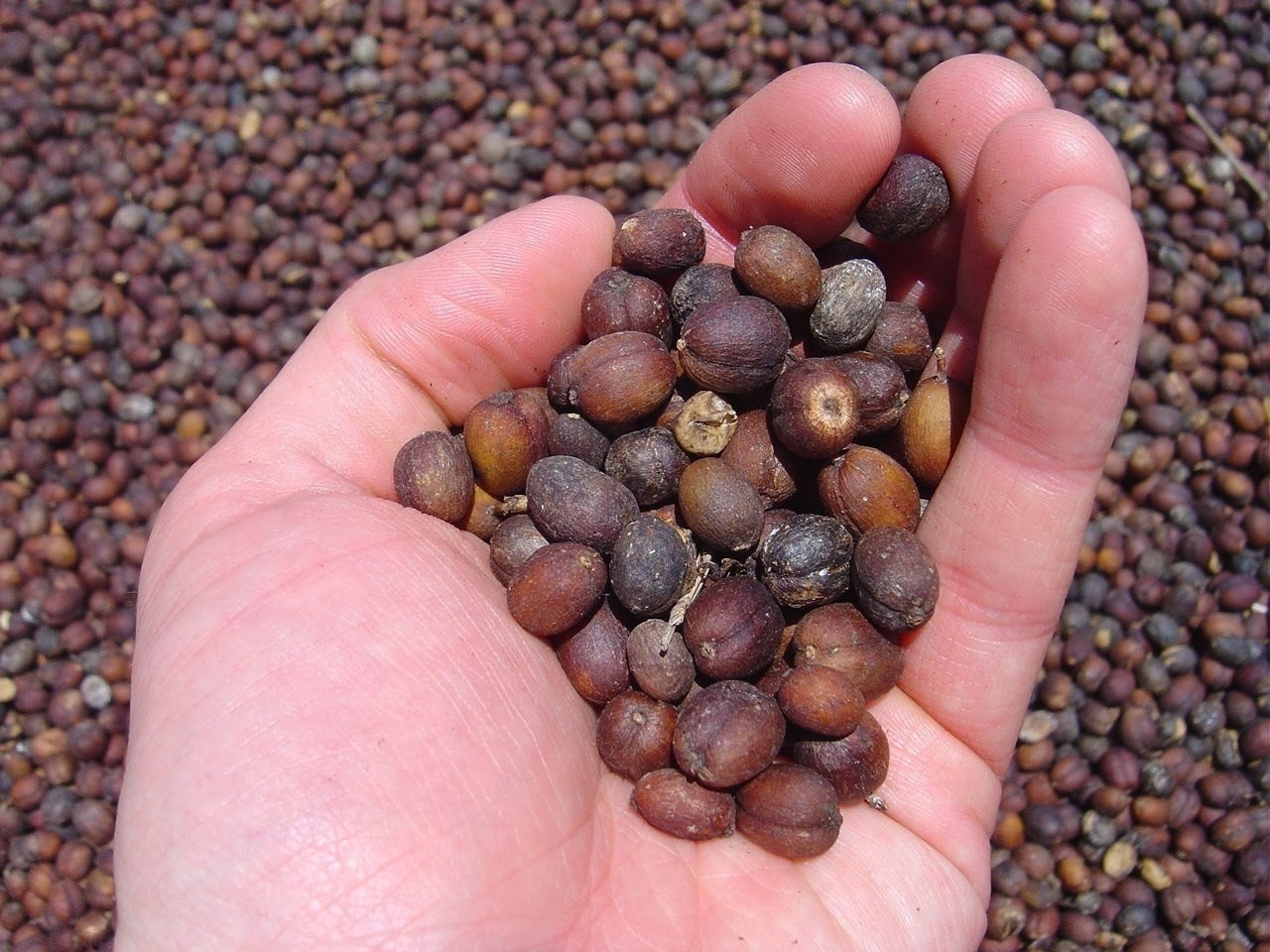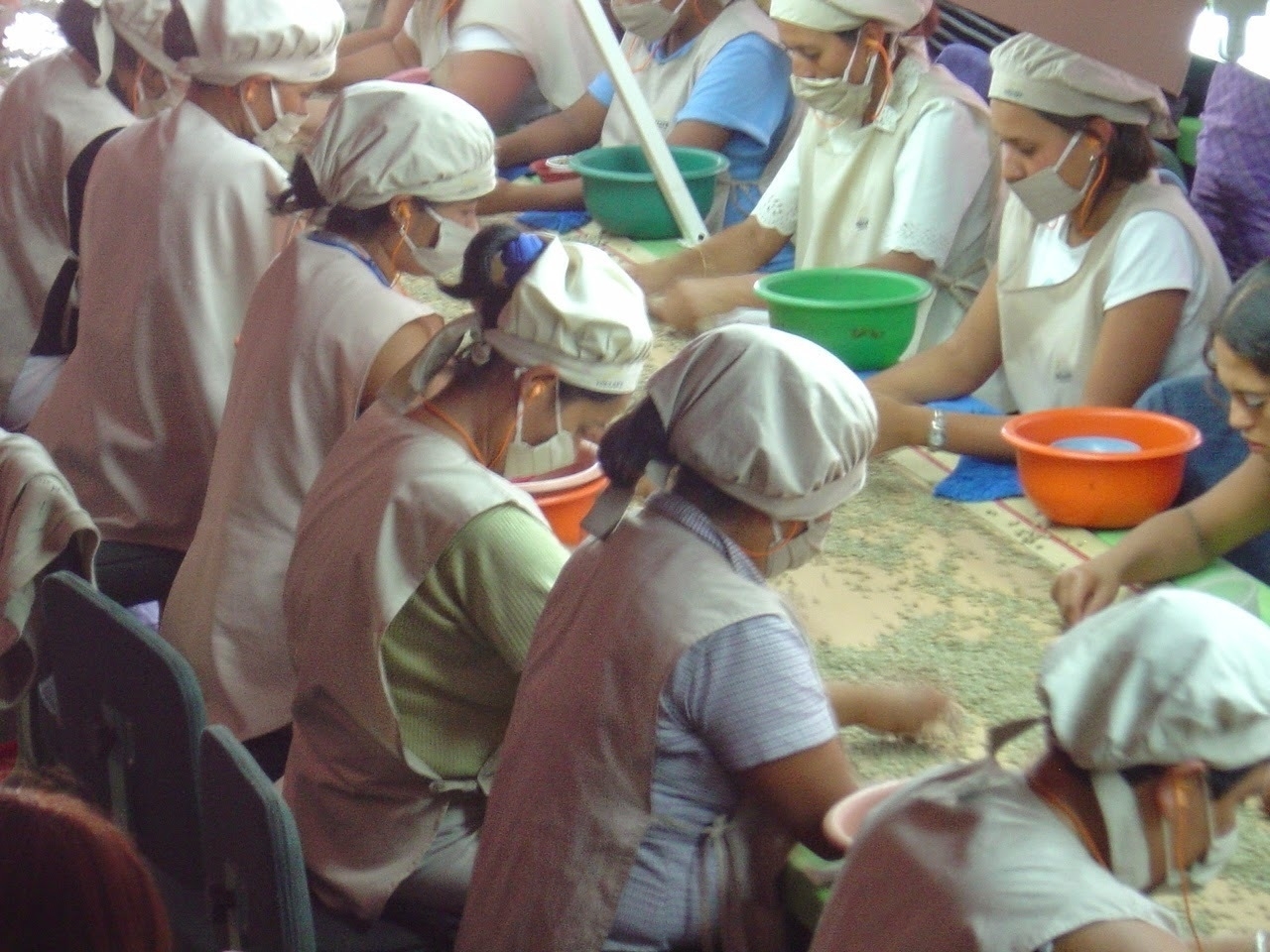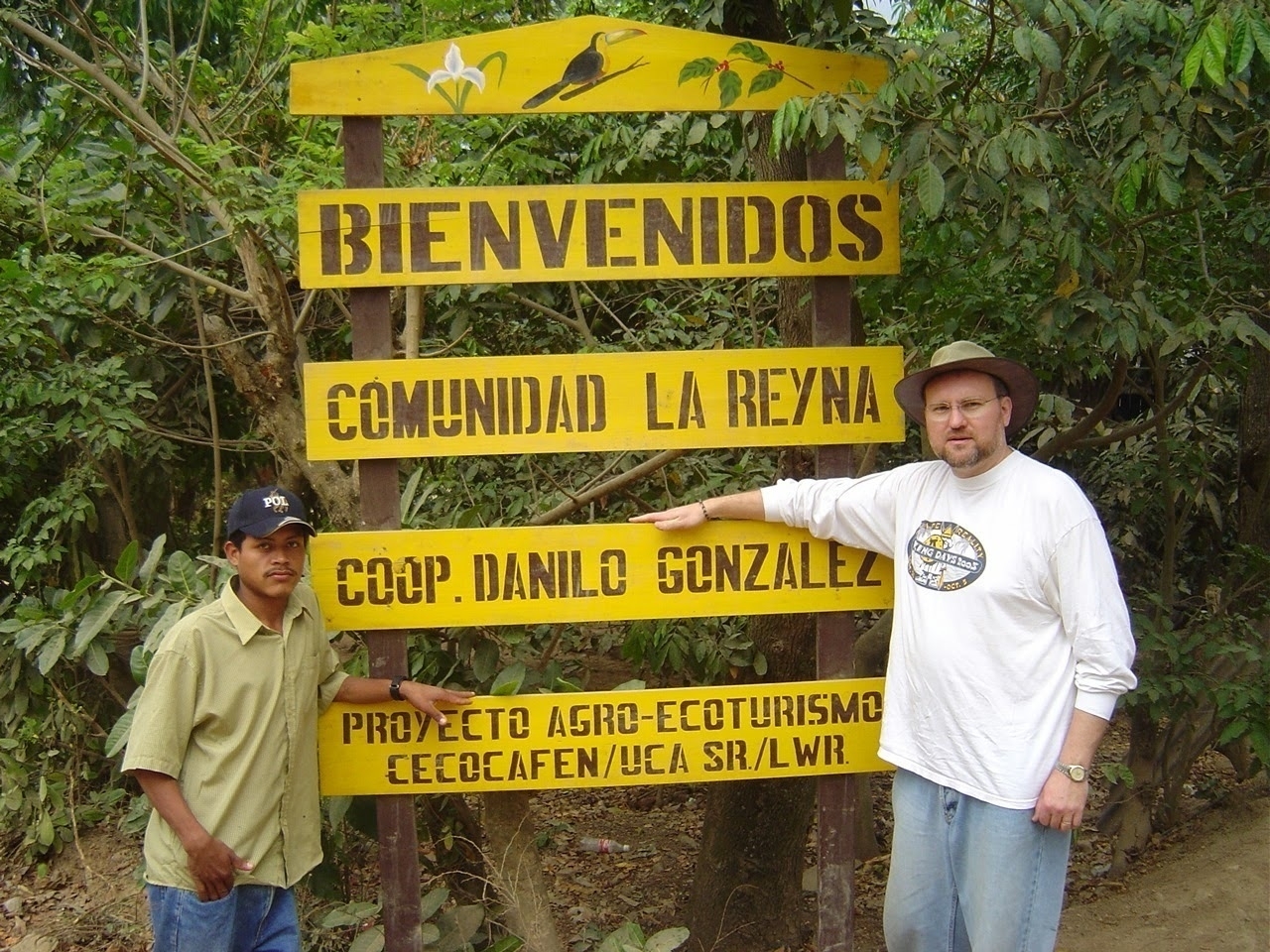immigration
- The passage from the novel is from Laura Ingalls Wilder, Little Town on the Prairie. (New York: Harper Collins, 1971) 198-199.
- The passage from Laura Ingalls Wilder's letter to her friend can be found here: LIW to Miss Weber, 11 February, 1952. Cited in Ann Romines, Constructing the Little House: Gender, Culture, and Laura Ingalls Wilder, University of Massachusetts Press, 1997. p.233.
- The economy of Nicaragua is closely tied to the economy of the United States;
- Many Nicaraguans have had to leave their family farms because cheap exports from the United States make it impossible to sell their produce and grain at competitive prices;
- Those who leave the family farm often fail to find work in the cities;
- One cause of this is that the work conditions in the cities are largely established and controlled by the international firms that can easily relocate to other poor countries if their requirements are not met. This keeps wages low, and makes it difficult for the country to receive any tax benefit from international industry;
- So capital freely flows out of the country and across borders;
- People follow the capital as it flows.
Ants and Grasshoppers, Wasps and Cicadas
The Ant and the Grasshopper (or Cicada)
We’ve been thinking about cicadas for a long time. In his well-known fable, Aesop compares cicadas to those industrious hymenopterans, the hardworking ants. (Ants, bees, and wasps are all hymenopterans. Sometimes Aesop’s word “cicada” is translated as “grasshopper.”) Bernard Suits' book The Grasshopper reminds us of the timelessness of that comparison, and asks us to consider the place of play in a well-lived life. (Incidentally, there's a playful restaurant in Athens' Syntagma neighborhood called Tzitzigas kai Mermigas.)
Students of ancient Greek Philosophy will remember the cicadas in Plato’s Phaedrus. That text offers us a rare glimpse of Socrates outside the city walls. Cicadas hum loudly overhead when Socrates ironically declares that he is still trying to examine himself, and so he has no time for the cicadas’ sweet song. A little later on, Socrates (again, ironically) returns to the cicadas and suggests that their song is a distraction for those who would examine their lives in conversation with other people. (Aesop: Perry 373; Plato, 230b, 259a)
It’s no surprise to me that cicadas figure in these and other classic texts from around the world. Cicadas are both beautiful and mysterious to the young naturalist. Cicadas spend most of their lives underground. Late in life, they emerge and shed their exoskeleton. Their adult lives will be short, but full of singing, flying, and mating. Not a bad way to go, I think.
Cicadas can also be pests. Their noise can suck the calm out of a summer evening, and these subterranean tree parasites also suck the life out of trees.
The Myth of the Wasps
But it’s not the cicadas that interest me this year. Instead, I’m looking at the hymenopterans. Around this time of year another species emerges with the cicadas: cicada killer wasps (sphecius speciosus).
These two species have a lot in common. Like the cicada, the cicada wasps live underground for most of their lives; they become winged adults around the same time; and they die after mating. The wasps emerge from their burrows with mating fervor and haste. They move fast, darting and banking suddenly. The males joust with one another, constantly changing direction and speed. These are some of the biggest wasps we have, thick as a pencil and up to five centimeters long. They have huge eyes and long, black-and-yellow-striped bodies. They look dangerous.
They look dangerous, but they're not very dangerous to most of us.
Looks Can Deceive, For Good Reason
Contrary to their appearance, they don’t pose much threat to humans. My instinct on seeing huge, fast wasps is to run, or to swat them away. Evolutionarily, this is probably a good instinct. We fear creatures that look like they sting and bite because some of them can hurt us.
When I was a child, that fight-or-flight instinct was strong. Growing up in the Catskill Mountains, I learned to avoid snakes, spiders, and wasp nests, and to be on the lookout for larger predators like bears. One day when I was playing at the wooded edge of our lawn, Dad ran outside to tell my brother and me that one of the neighbors had just seen a bobcat nearby. We were small, and folks were worried. Would a bobcat attack a child? We all eyed the woods warily, and for weeks afterwards we distrusted the forest.
Fighting for Food Is Expensive
In my two decades of teaching environmental studies, I’ve come to realize that most of the creatures I encounter in the wild don’t want to tangle with humans. The wasps are interested in other wasps, and in cicadas. Like my father that day in the Catskills, the wasps are looking out for their families, and in doing so, they’re incidentally tending a garden from which other creatures benefit. As the name suggests, cicada killer wasps hunt cicadas to feed their offspring. By limiting the population of the cicadas, the wasps help the trees, which helps everything that depends on the trees, even the cicadas that survive and mate. Female cicada killer wasps paralyze cicadas with their stinger. Then they drag the cicadas into their burrows. The wasps lay male eggs on single cicadas, and female eggs on multiple cicadas. (The females grow bigger and need more food, so a female egg gets a bigger larder.)
A female cicada killer wasp won’t sting you unless you force her to. Grab her hard and she will fight back. Leave her alone, and she will leave you alone as well. Likewise, the stingless males might seem threatening, but they’re just looking for love, sometimes in the wrong places. The reason why they are flying so fast? They’re competing for mates, and they’re looking for a female who is ready to breed. All of those adults flying around right now will be dead in a few weeks; they’ve got work to do, and little time to do it. All of their children will be born in solitary burrows, lonely orphans. Their parents are doing what they can right now to make sure that those orphans survive. And so the cycle repeats itself.
Why does any of this matter?
First, I’m telling you a little about my work as an environmental philosopher. I don’t just study animal ethics and ocean policy. Much of my time is spent trying to observe the world around me. Like Thoreau and Aristotle before me I want to learn what I can about the lives I share this place with. Some of my research is done in journals and books, but a lot of it is done outdoors. I study salmon in the Arctic, I take my students diving on reefs and trekking through forests, and we spend time just watching the wasps and cicadas here on the prairie.
Second, I want to affirm that your fears of wasps and bees and snakes are natural and even reasonable. That instinct has helped our species survive and to care for our families, just like the instincts of the cicada killer wasps help them. There’s no shame in that.
Which brings me to my third point: the fears may be natural, but firsthand experience and liberal education can go a long way towards moderating those fears. The fears are limbic, buried deep in our genes and brains. But that should not satisfy us; we should take Socrates’ famous words about the examined life to heart, and examine the fears that constrain our decisions.
It’s reasonable to fear wasps in general, but the more you learn about wasps and bees, the more you’ll see that most of them want nothing to do with us. Think about it: we can kill them with a swat. We are giants in comparison to the biggest wasp in the world. For some hymenoptera, stinging us is expensive. Some bees die when their stinger is torn from their body. When wasps sting, they draw on their limited supply of potent toxins. Something similar is true of venomous snakes: it’s metabolically expensive for them to produce venom, and it’s extremely risky for them to attack something as large as an adult human. Most of them, given the choice, will avoid us. I see this in my fieldwork in the far north and the far south, too: many large carnivores like jaguars and brown bears would rather avoid me if they can. Animals, like humans, don’t want to spend more for a meal than necessary.
(Of course, scarcity of food can justify greater expenditure of energy to make sure you have a meal. This is why, as the arctic is losing its ice, polar bears are walking farther and farther in search of food. This year several polar bears have been found an extraordinary distance from the ocean. Hunger can make migrants of us all.)
This brings me to my last point: I’m not just writing about bees and bears, after all, but also about politics. The cicada killer wasps are a living parable, a fable with a moral. You and I have some prudent fears that are built into us.
It makes sense, on an evolutionary scale, to be fearful rather than trusting, and to avoid the unfamiliar. It makes sense to be wary of immigrants whose language, clothing, diet, cultural practices, and aromas differ from those of our friends and family. Likewise, it makes sense to be standoffish when you have had a bad experience with someone who does not walk, talk, or look like the group you most associate with.
Making fresh decisions costs us calories in mental effort, so we save our energy by limiting our social sphere. The echo chamber is comfortable because it’s an easy lift. Anyone who requires you to learn new vocabulary or new ways of thinking about love, family, politics, money, faith, recreation, food, or the other things that make up our lives is someone who costs us the energy we consume in making new decisions.
It’s tempting to look to simple technology to make our lives easier. It would be much easier to build higher walls, spray stronger toxins, create more information filters to choose our reading for us, and never to learn the names of those affected, as though we didn’t share an ecosystem.
As though we were not quite similar to one another. As though we did not all love our families. As though only some of us understood the value of hard work. As though we did not depend on one another. Kill the ones we have called the killers and be done with them.
But if we do so, we remove them from the system we share, and we leave a gap. Without the wasps, the cicadas lose a species that serves their species. If the cicadas multiply, the trees will pay the price. If we kill the wasps, we pass the buck along to the trees, and to everything that depends on them, including ourselves.
The Fable of the Bees, and the Examined Life
In Bernard de Mandeville’s Fable of the Bees, he makes the claim that we are all driven by innate mechanisms and drives. Evolutionary theory backs that up, to some degree, but we’re not just machines.
We’ve got the capacity to examine ourselves, and to learn, and to make some changes. We might all be born with a fear of snakes, spiders, and wasps, but if we take the time to learn about them, and to learn about what drives them, we might find that we fear them less and welcome them more readily.
Could the same be true of our fellow humans who differ from us? For me, at least, this has been one of the best lessons of being an environmental philosopher.
Fellow Gardeners
Recently I was working in my garden here in South Dakota. Two male cicada killer wasps were feeding on the tiny blossoms that are just opening up on my mint plants. One of them, perhaps startled by my arrival in the garden, flew up into the air and bumped into me, then righted himself and flew off. The other sipped nectar and continued to hop around the garden. A moment later, the first one returned. He got over his fear and went back to eating. As they ate, they helped to pollinate the flowers, as so many bees and wasps do. My garden will bloom again next year in part because these “killers” helped me with my gardening.
I’ve also gotten over my fear, although it took me a lot longer than it took that male wasp. Little by little, as I’ve paid attention to the small creatures around me and tried to learn their names, I’ve come to welcome them as neighbors. I’m trying to learn their language, and to appreciate their culture. I’m glad to share the garden with them.
My Interview With Lori Walsh on South Dakota Public Radio
What's In A Name? Almanzo Wilder and El Manzoor
It's worth remembering that act of kindness shown to a Crusader, by a man with a Persian name. The Wilder family remembered that act centuries later. ("Manzoor" and variants of it are fairly common in Iran today. For example, the kind and brilliant former Director of the Toronto and San Francisco Operas, Lotfi Mansouri, was born in Iran and educated in California.)
This story makes me wonder: how might I live my life in such a way that another family will be glad to remember me a thousand years from now?
You can read the full text of my short essay about Almanzo and El Manzoor in today's Sioux Falls Argus Leader.
Since the essay in the Argus doesn't include my footnotes, here are the relevant citations:
Protecting Borders, Loving Neighbors, And The Economics Of Child Migration
Too often our approach to this problem is, like many U.S. political questions, polarized into mutually repellent views about how we should view our laws. Should we reform them or enforce them? Let me suggest another angle from which to consider the problem.
Eight years ago, Reynold Nesiba (an economist who is my friend and colleague) and I co-taught a course for American students in Nicaragua. The purpose of the course was to spend time thinking and talking about the effects of globalization on a small developing nation.
We both prefer to teach contextually, so that the assertions of our readings and lectures can be supported and challenged by what the students see and experience in the places we visit.
 |
| Coffee beans grown in Nicaragua. |
We spent time with collective coffee growers, and with big coffee processors; with small, independent textile workers and in an international textile plant built in a tax-free zone in Managua. We did homestays and met with development workers, a health clinic and a local church. We met with and listened to as many people, from as many points of view, as we could.
 |
| Workers sort coffee beans. |
Although the course made many things unclear, it made a few things clearer. Among them are these:
If I'm right, though, then it gives some context to the persistent problem of illegal migration across our southern border, and it suggests a remedy.
The problem is plain: poor people are following the money trail, and fleeing the harsh economic conditions that prevail in poor countries.
The remedy is also plain, even if it is not easy: we need to figure out a way to increase the flow of capital into places like Nicaragua, and to do it in such a way that it increases jobs (not merely increasing the income of the top earners) and increases the tax base. One such possibility - especially if my second bullet point, above, is correct - would be to examine the way farm subsidies might actually be decreasing our ability to secure our borders. Our nation reaps profit from Nicaragua. Is it possible to do so in a way that also benefits Nicaragua?
I don't mean to pretend to be an expert here. I do have some relevant experience in Central America (from teaching regularly in Nicaragua, Guatemala, and Belize) but it's far from being hard data. But surely what we need is not fewer anecdotes but more stories from and about people who are most affected by the economies of our several American nations. If we are to love our neighbors, we need to learn who they are and what drives them. A mother who would send her young child, alone, across Mexico in search of a new life is either wicked or desperate, and the latter seems the likelier story. the roots of the word "desperate" mean "without hope." Loving our neighbors surely must include trying to give hope to the hopeless, and not merely building a wall across the only path towards hope that they can imagine.
 | |
| The old cathedral of Managua. Unused since it was damaged by an earthquake 40 years ago. |
 |
| A coffee cooperative in the mountains of Nicaragua. |
 |
|||
| A sewing cooperative. |
No Room In The South Dakota Inn? An unjust and ironic law.
Manny Steele and two other SD legislators are apparently proposing that we criminalize hospitality. Their proposed law would make it illegal to offer a ride or lodging to illegal immigrants, and it would also make it a crime for an illegal immigrant to ask for work.
Putting aside the fact that this would be a very difficult law to obey and to enforce (Would bus drivers and cab drivers need to verify citizenship before taking on fares? Would it be illegal to offer a ride to a stranger? Would shelters be forced to turn aside illegal immigrants on freezing nights?) this is ironic news to appear on the first Sunday of Advent, the season in which we prepare to celebrate the birth of Jesus. This is the Jesus who was born to poor immigrants who had no place to live in their hometown. Who was born in a barn. Whose parents were forced to flee their homeland to escape politically motivated violence.
I propose that our legislators take some time this Advent to try to put themselves in the shoes of other poor migrants. Think about it: if you lived in Mexico, would you willingly give up that climate for South Dakota winters if you could avoid it? Would you give up your hometown, your family, your language, your familiar food - in short, everything - to come to South Dakota if you could avoid it?
More to the point: Would you make Mary give birth in your barn or your garage? I understand why you’re concerned about jobs and about enforcing our laws. We have a great country, and we should work to keep it great. But we will not make our country greater by making our hearts harder.
Meanwhile, as for me and my family, we would rather stand with Mary and Joseph. And we will continue to say, as Christians and Jews have said for millennia, that an unjust law is no law at all.
María y José, bienvenidos en nuestro pueblo.